Nigeria’s energy crisis remains one of the biggest obstacles to economic growth, with millions of households and businesses suffering from erratic power supply.
The national grid is unreliable, and fuel costs for generators are increasingly unsustainable, leaving many Nigerians in a state of perpetual energy poverty.
Many people are turning to renewable energy, particularly solar, as a viable solution to enable them access to reliable energy.
With abundant sunlight and growing concerns over fossil fuel dependence, solar energy is expanding within Nigeria’s energy mix, offering a cleaner, more sustainable alternative to traditional power sources.
It is pertinent to note that solar energy is not exactly cheap and not many Nigerians can afford the cost.
However, some startups are championing the transition to clean energy in Nigeria, driving the adoption of solar technology through innovative business models and accessible financing options.
These companies are making it possible for households, small businesses and off-grid rural communities to achieve energy security through solar energy.
From urban centers to rural communities, these startups are not only lighting up homes but are also enabling businesses to operate more efficiently, reducing reliance on costly and polluting generators. Their efforts are accelerating Nigeria’s shift toward renewable energy and providing stable and sustainable electricity to millions of people.
Nairametrics presents a list of some of the startups championing the solar energy boom in Nigeria. In no particular order, they include:
RANA ENERGY

Located in Abuja, Rana Energy is a solar and renewable energy startup dedicated “to providing sustainable innovative & customer-centric energy solutions for a greener Africa,” according to its website.
The company says it has a mission to build a brighter and more sustainable future by accelerating the energy transition for Africans, ultimately replacing expensive and unreliable generators with solar energy solutions.
It aims to drive the deployment of 100 MW of solar energy systems across Africa by the end of 2028, and it has started in Nigeria where it has 3,000 Tonnes of CO2 Annual emissions and has generated 10,000 MwH so far.
The company deploys GIS and AR-enabled energy assessment technologies, while it also develops AI-driven energy management systems, and utilise ML for maintenance, and support. It also provides remote site monitoring and system control
It built the largest solar carport in Nigeria at a 1 MW Site in Abuja. Some of its clients include USAID, UBA, Sterling Bank, and National Defence College.
UWANA ENERGY
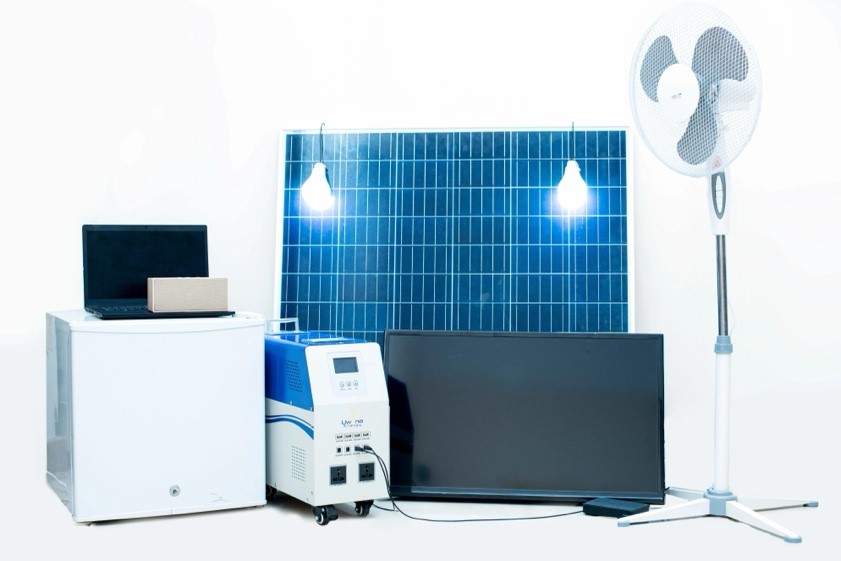
Founded in 2020, Uwana Energy provides solar energy solutions for households and industries.
It specializes in connecting customers to verified solar distributors, installers, and financing partners to enable them to get solar energy solutions based on their needs and budget.
The young company has a vision to “deliver solar solutions into the hands of every African that needs one within a fraction of the time it takes to get alternative energy today.”
With the desperate need for energy security, Uwana Energy helps people get access to solar energy through a cost-effective approach.
Also, by partnering with all actors in the solar energy value chain, it provides jobs for installers and technicians, while also providing markets for suppliers and guaranteeing the end-users of high standards.
According to its website, the startup has raised $130,000 in investment and thousands of homes & businesses have used its services, which include data-driven recommendations on the best solar solution, flexible repayment, after-sales care and inverter upgrades, a 24/7 issue resolution platform and customer education.
The pricing of its various solar products ranges from N135,000 to N4 million based on the kVA (kilovolt-ampere) capacity of the system, which is determined by the load (appliances and energy demand) the system is designed to support.
It has installed over 1MW of solar energy across residential and commercial locations in over 16 states.
As part of its Corporate Social Responsibility (CSR) activities, it launched the Love and Light Project, through which it provided 11 solar generators (500W each) to small businesses in the underserved community of Ajegunle.
This initiative has helped local entrepreneurs reduce energy costs, improve efficiency, and run their businesses sustainably, even in areas with limited grid electricity.
ARNERGY
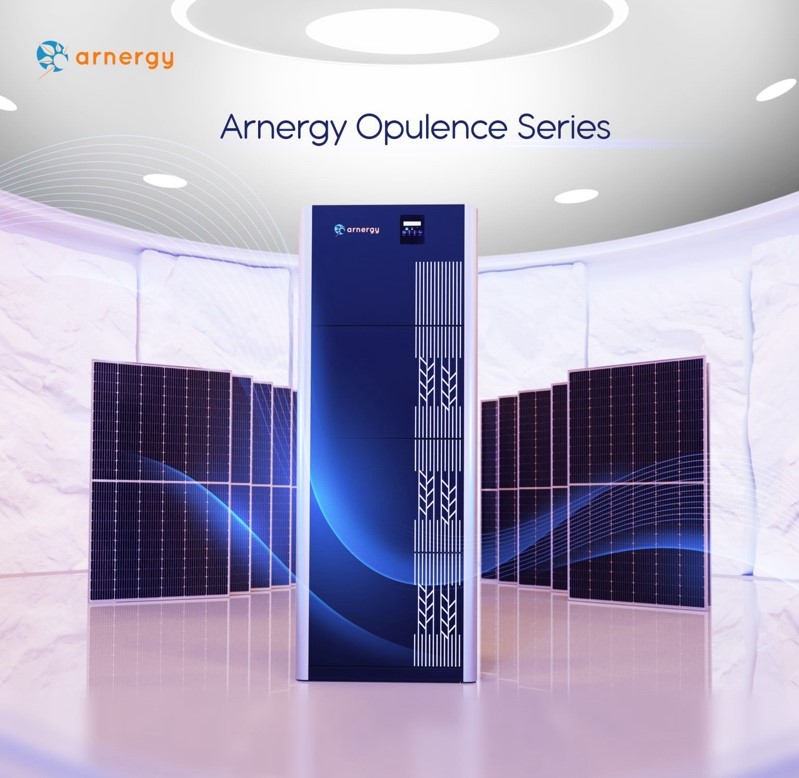
Arnergy is a cleantech company offering sustainable solar solutions to homes and businesses. Its solar products and services are tailored to deliver reliable 24/7 electricity to power various capacities of domestic appliances, office devices, and commercial equipment.
It is addressing the challenges of rising energy costs for households and businesses in Nigeria and other African countries
Its energy solutions are offered with flexible financing options including Lease to Own (LO), in which customers lease any of the solar products for ownership after some months.
The company says it has a mission to deliver energy solutions for productive use by deploying products, services and systems that power business operations and improve economic outcomes for our clients.
According to its website, it says it has generated 4.5 GWh+ Green Energy and has over 6.5 MWp of installed Solar PV Capacity. Its solar energy products and services have been patronised by educational and medical institutions across the country.
NIMSY AGRO SOLAR
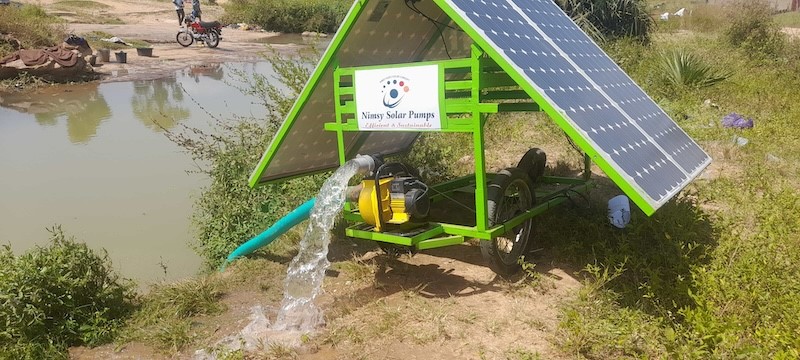
Nimsy Agro Solar Concept builds solar-powered agricultural equipment. It provides farmers with affordable solar irrigation, threshing, drying, and milling services on rental or a pay-per-use model.
Its solar-powered agro equipment which helps farmers boost productivity includes the Nimsy Solar Dryer, which dries perishables like tomatoes and fruits faster and hygienically and increases the shelf life of perishables from 3 days to 12 months; the Nimsy Solar Mill, which mills 50 kg of grains per hour; and the Nimsy Solar Thresher, which threshes over 500kg of multiple grains such as rice, maize, soybean and sorghum per hour. It also has a Solar Pump for pumping water and a solar dryer.
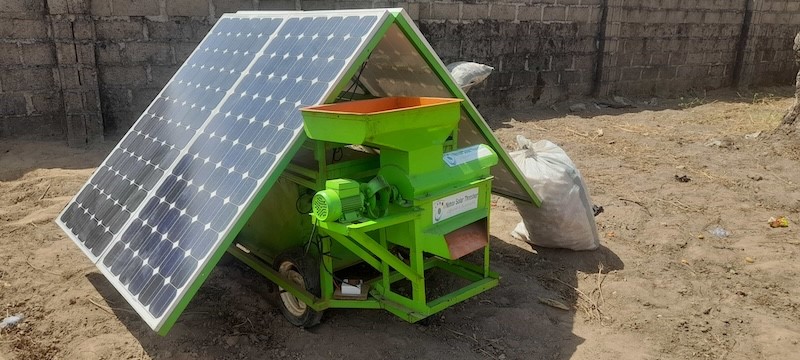
The company is empowering farmers and boosting agriculture in rural communities, where farmers endure poor productivity and post-harvest losses. It is boosting mechanised farming but with solar energy rather than fossil fuels.
CEESOLAR
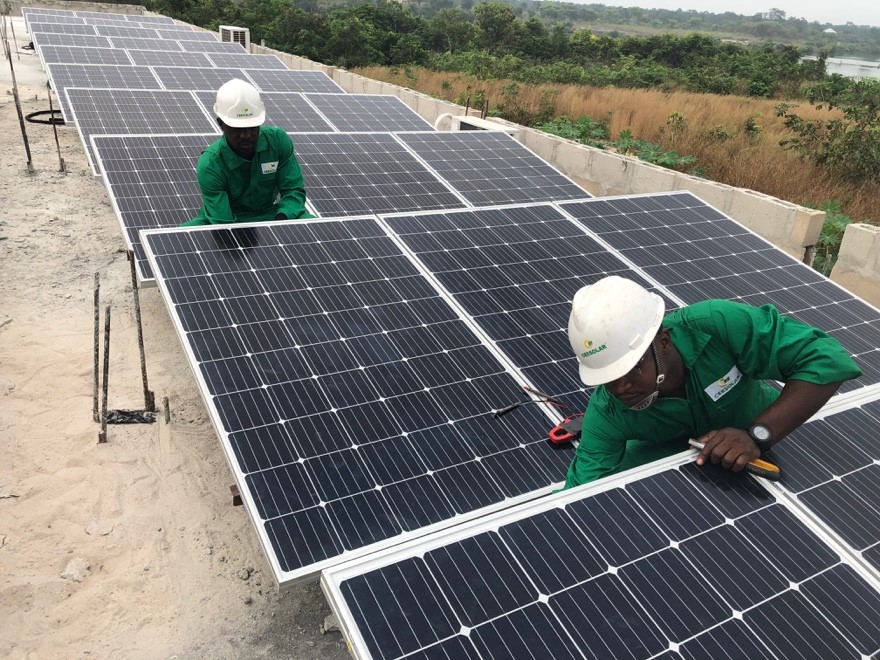
Ceesolar provides solar energy solutions not only to businesses and industries but also to agricultural establishments and rural communities.
It powers mini-grids to provide reliable and sustainable power to off-grid communities, enhancing their economic and social development.
It also provides expert advisory and capacity-building services, including energy audits, feasibility studies, and project management, to optimize energy usage. In 2024, it received a grant of $395,000 from Deutsche Gesellschaft für Internationale Zusammenarbeit (GIZ).
POWERFULL
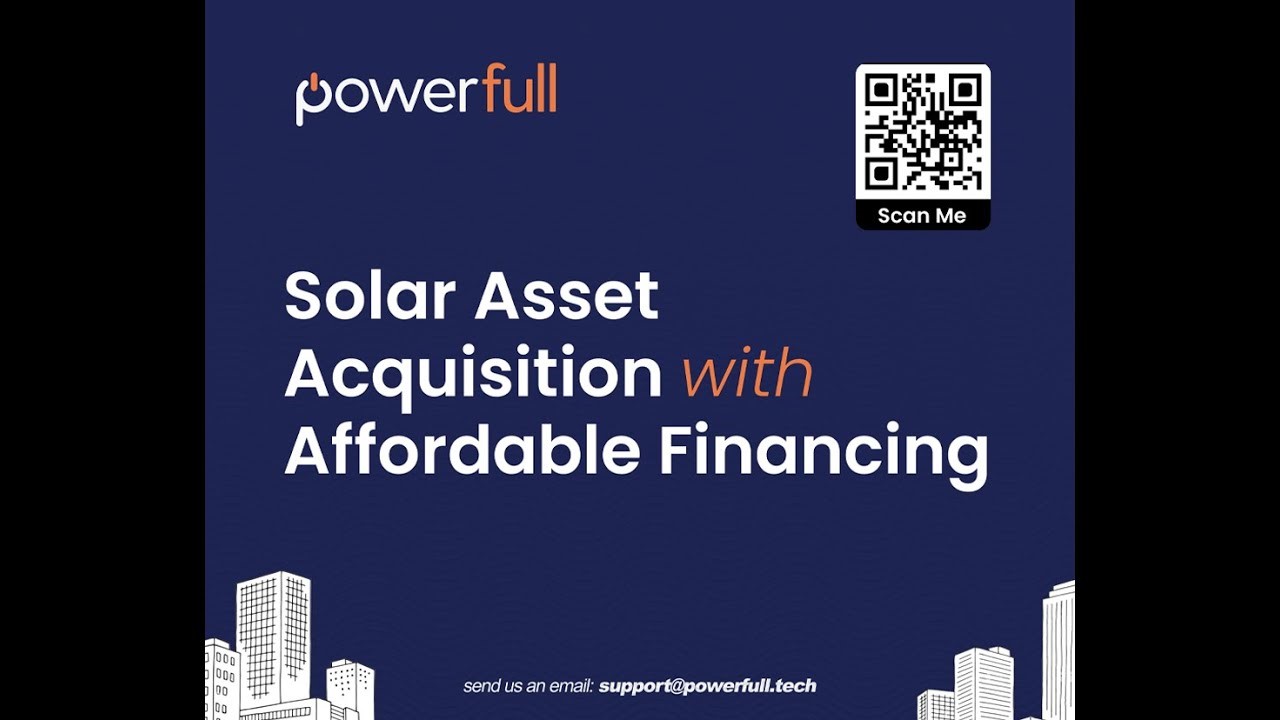
Powerfull is a technology-anchored company revolutionizing solar financing and repayment solutions for businesses in Nigeria.
Founded by Ifeanyi Ukwoma and Mayowa Abiodun, Powerfull provides financing to businesses, residential estates, schools, hotels, offices, shops, and hospitals to acquire high-quality solar energy equipment.
Its financing options are tailored towards individual customer’s needs and budgets, helping them complete their payments seamlessly through cost-friendly payment options.
Its solar asset financing service has been rendered to thousands of businesses in Nigeria, helping them transition from using petrol or diesel generators to solar energy, and thereby reducing their energy costs.
The company says it uses financial, banking, and energy data to identify eligible businesses, and the eligibility criteria include being operational for at least 3 years and the availability of an operating history of the usage of diesel or petrol generators.